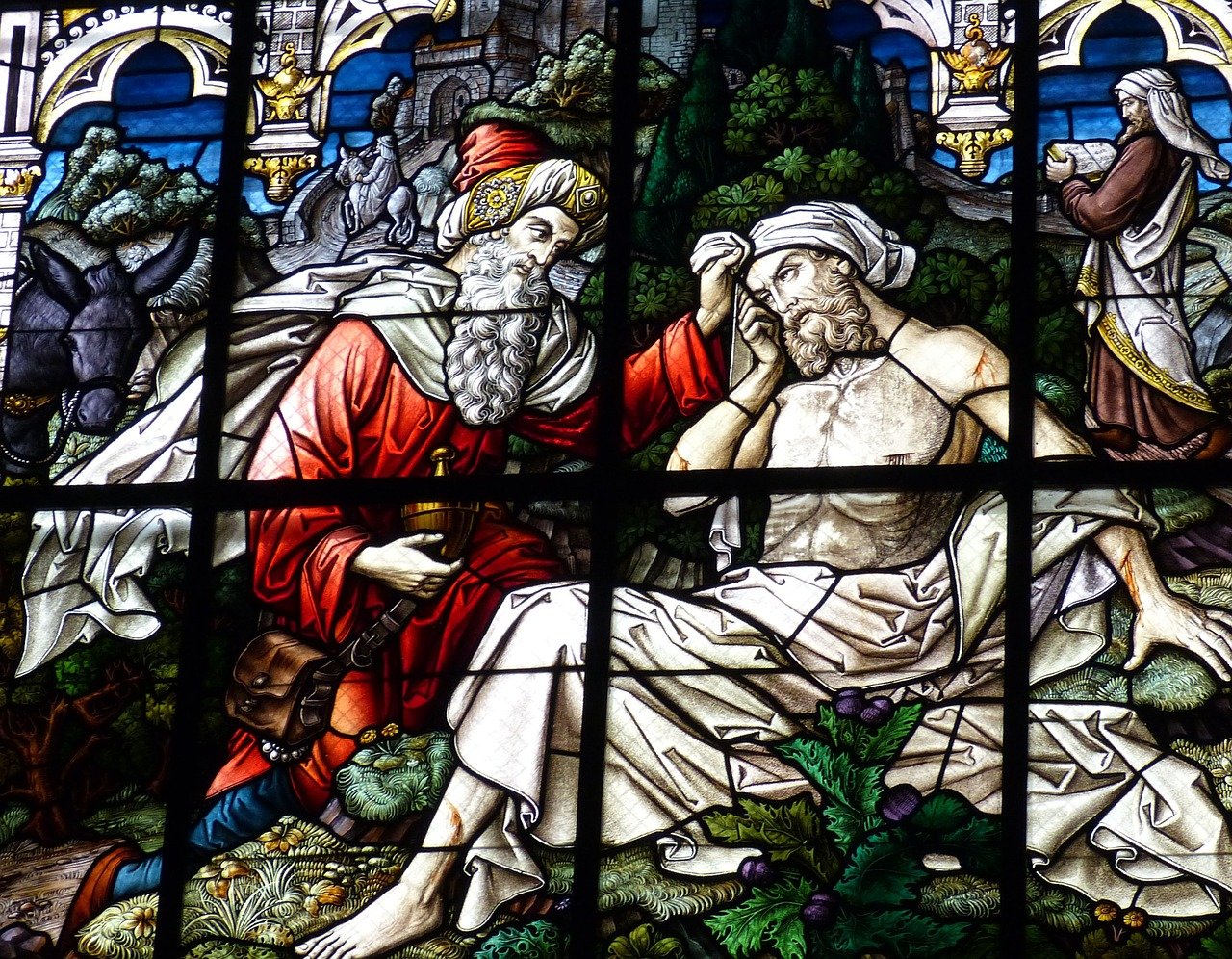We have been told that Jesus came to save sinners. Moreover, we have grown up with the idea, often reinforced in sermons in Church, that we all are ‘sinners’, based on the teaching of St Augustine on ‘Original Sin’. We have taking on this judgement unquestioningly because who hasn’t done something sometime of which we are not very proud? We are after all our own worst critics. But that sense of sin and guilt we have grown up with distorts our image of God as loving and merciful – Jesus’ real message. It leads us to the image of God as a judge, “an external power that rewards us materially for keeping the commandments and brings suffering on us for breaking them.”(p.108) Therefore our good fortune is a reward from God for living a righteous existence and our misfortune is a punishment for breaking His commandments. This belief is not only prevalent now but it was so very common in Jesus’ time “that even his disciples were dumbfounded when Jesus proposed a radically different way of looking both at suffering and well-being. Good fortune, being comfortable and well-off might in fact, he said, be a curse in disguise…..Wealth brings dangers that can impede your spiritual progress far more seriously than misbehaviour.” (p. 107)
An example of this attitude is recorded in St John’s Gospel (Jn 9:1ff) in the reaction to him healing a man born blind. “Surely, they said…to be born blind is a sign that you or your parents had sinned. God who favours the righteous also punishes the sinners…It is common knowledge that God does not listen to sinners. He listens to anyone who is devout and obeys his will.” (Jn 9:31)
The attitude here expressed of clear cause and effect in moral questions, similar to the Law of Karma in Hindu and Buddhist philosophy, satisfies something deep in human nature. We know and approve of the view that every action has a corresponding reaction – sinners have to be punished and righteous behaviour rewarded. If this doesn’t happen it can cause confusion, bitterness and even loss of faith.
But what was meant by sinners in Jesus time? Surprisingly the phrase meant something more than the way we now understand the concept of sinners. “The term did not carry only the sense of someone who breaks moral codes.” (p.107) Laurence Freeman explains that people were considered to be sinners when belonging to occupations, which were looked down on, such as shepherds, tailors, barbers, tax-collectors and butchers and were as strictly demarcated as castes are in India. The reason they were called ‘sinners’ was that they were so poor that they could not afford the fees charged by the Temple for ritual purity and so were permanently excluded – by human standards but not by God’s – from religious fellowship. These are the ones Jesus spent most time with – the marginalised, the rejected, and the scorned. He was “as a doctor to the sick.” He healed them by his strong sense of compassion for those physically, emotionally and spiritually ill. He bridged the gap in people’s mind between God and them. They were not rejected by God, they were his children as much as anyone else, which helped them to regain their belief in their own value and worthiness of esteem. This loving acceptance by Jesus mirrored for them the Love and Mercy of God.
Jesus rejected therefore the attitude of the community of his time with their ‘caste’ divisions, their legalistic attitude and their unquestioning belief in the inevitability of the justice of the Law of cause and effect. His main message is that Love and Forgiveness is the essence of God and overrules all man-made systems of thought. The most moving example of this is the parable of the Prodigal son. He had sinned in all ways we as humans would condemn and therefore he deserved punishment according to our standards. Yet by accepting personal responsibility for the result of his ego-centric actions, he turned back to God and His will and was totally forgiven and lovingly welcomed.







